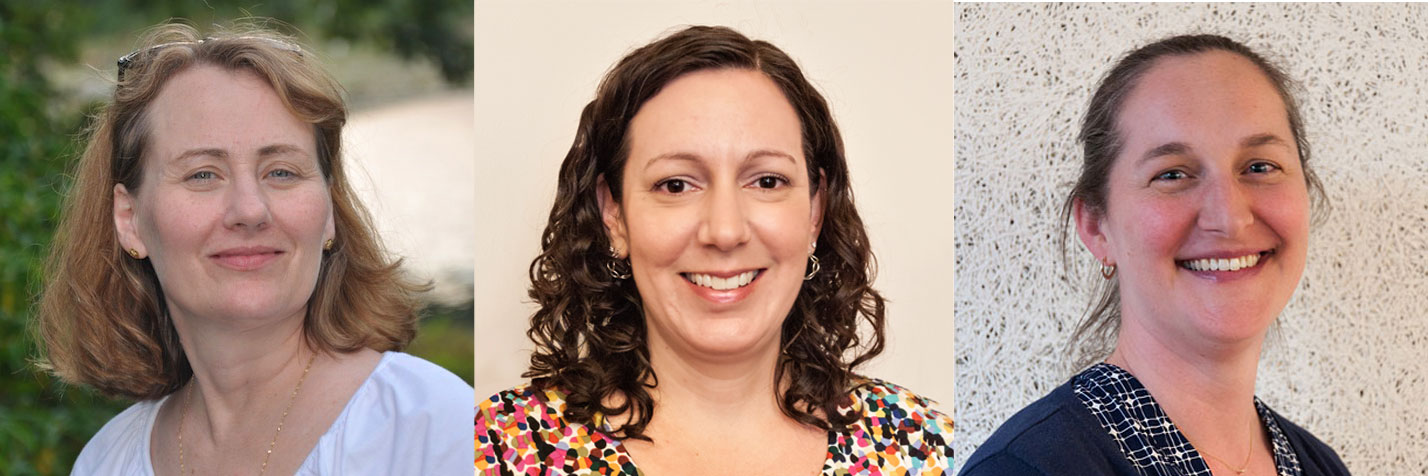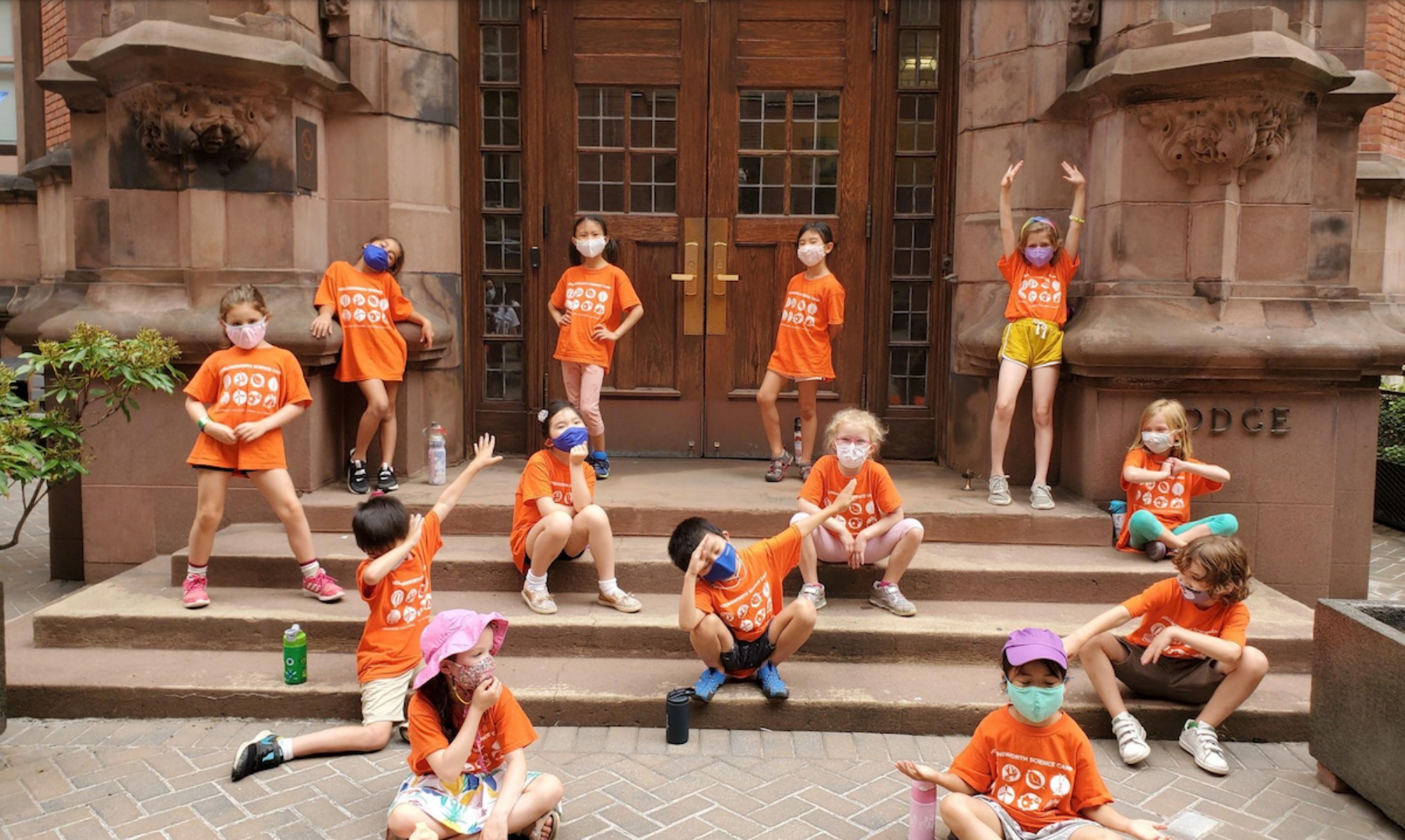After more than a year of constant changes and shifting versions of “normal” during the pandemic, Hollingworth Science Camp has returned to Morningside Heights with a bit of change, and a reminder that some things never do. Summer for the campers, ranging from first through fifth graders, still means activities in Riverside Park, new friends and enthusiasm for hands-on science projects — albeit with masks and other health precautions, as well as new approaches that signal what may be ahead for learning in the post-Covid age.
The camp, based at Teachers College’s Hollingworth Center, returned to in-person activities after successfully engaging young learners virtually last summer, when “the need for early science opportunities” had “never been more urgent,” Hollingworth Director Lisa Wright wrote at the time. A fixture in Morningside Heights since 1981, the camp uses inquiry-based activities to engage kids in everything from physics to the psychology of color, using socio-emotional learning and anti-racism tools to create a supportive learning environment that “makes science more meaningful.”
“We heard that the campers were really grateful to come together and have the closest thing to ‘normal’ that we could pull off,” said Jacquelyn Durán (Ph.D. ’18, Sociology and Education), Director of Science Initiatives at The Hollingworth Center. “We couldn’t do our usual practices, but we asked, ‘What can we do? And is that still better than Zoom? Yes.’”

LEARNING SCIENTISTS From left: Hollingworth Center Director Lisa Wright; Jacquelyn Durán (Ph.D. ’18), Director of Science Initiatives; Alison Matthews (M.A. ’06), Assistant Director and Curriculum Specialist. (Photos: TC Archives)
Committed to creating the best and safest experience for campers, Hollingworth leaders began formally preparing in January, looking to in-person school procedures for guidance. Durán and Alison Matthews (M.A. ’06, Elementary Education), developed and continually modified programming to align the latest guidance on Covid-19 from New York State and the Department of Education, while coordinating with personnel at TC.
“We are a hands-on, inquiry-based science program, so having the kids be able to touch things, do things and collaborate with each other is part of who we are and what we do pedagogically, so we definitely had to make some changes,” explained Matthews, Hollingworth Science Camp’s assistant director and curriculum specialist. “We did the things we could do well,” Matthews noted, including providing students their own materials for experiments, leading a substantial amount of programming outdoors, and facilitating conversations with scientists around the world on Zoom.

MASKED FOR THE TASK Committed to creating the best and safest experience for its students, Hollingworth Science Camp developed and continually modified programming to align with the latest guidance on Covid-19 from New York State and the Department of Education, with campers wearing masks and physically distancing throughout the summer. (Photo courtesy of Hollingworth Science Camp)
In addition to encouraging scientific inquiry, camp leaders were also tasked with supporting students who also may have been coping with two major challenges that continue to grip the United States and much of the world: the pandemic and systemic racism.
“We didn’t know how the kids were going to react to returning to group settings, and we thought there might be different expressions of excitement, anxiety or trauma...We wanted teachers to be on the lookout,” said Matthews, who noted that camp educators completed trainings on anti-racism and socio-emotional learning.
Socio-emotional learning also played a key role in developing this summer’s programming theme, “colorful science,” which not only served as an entry point for students in various science projects, but also provided the foundation for educators to help campers use color to better identify and express their emotions. “We all needed some color and light at this time.”
Reinventing the logistics of inquiry-based learning during the pandemic, Hollingworth successfully led 5 weeks of camp with 106 students at Teachers College — a welcome look ahead to the fall, when the majority of the TC community will be on campus after several months of remote operations.
For Hollingworth, the preparation to return helped everyone align on “what a school-like environment could look like at TC during Covid with young children,” said Durán. “There was a sigh of relief when it got going: ‘Oh, this is actually working great.’”
Covid brought changes, but with the return of long-time educators and campers to TC, Hollingworth innovated — and kept the exploratory spirit that often seems synonymous with summer.
“It felt like, ‘this is okay,’” Matthews said. “It feels like camp.”
— Morgan GIlbard
